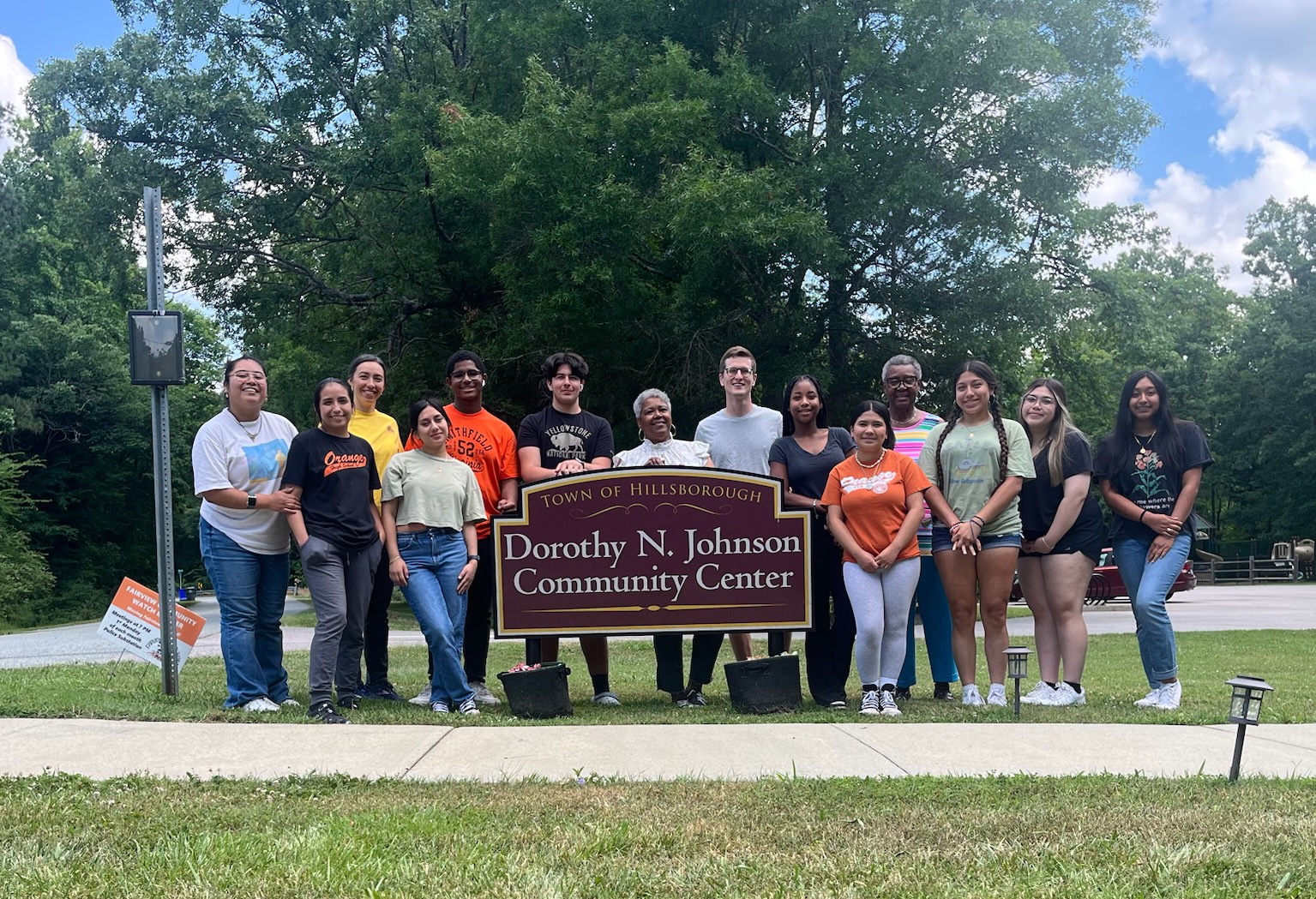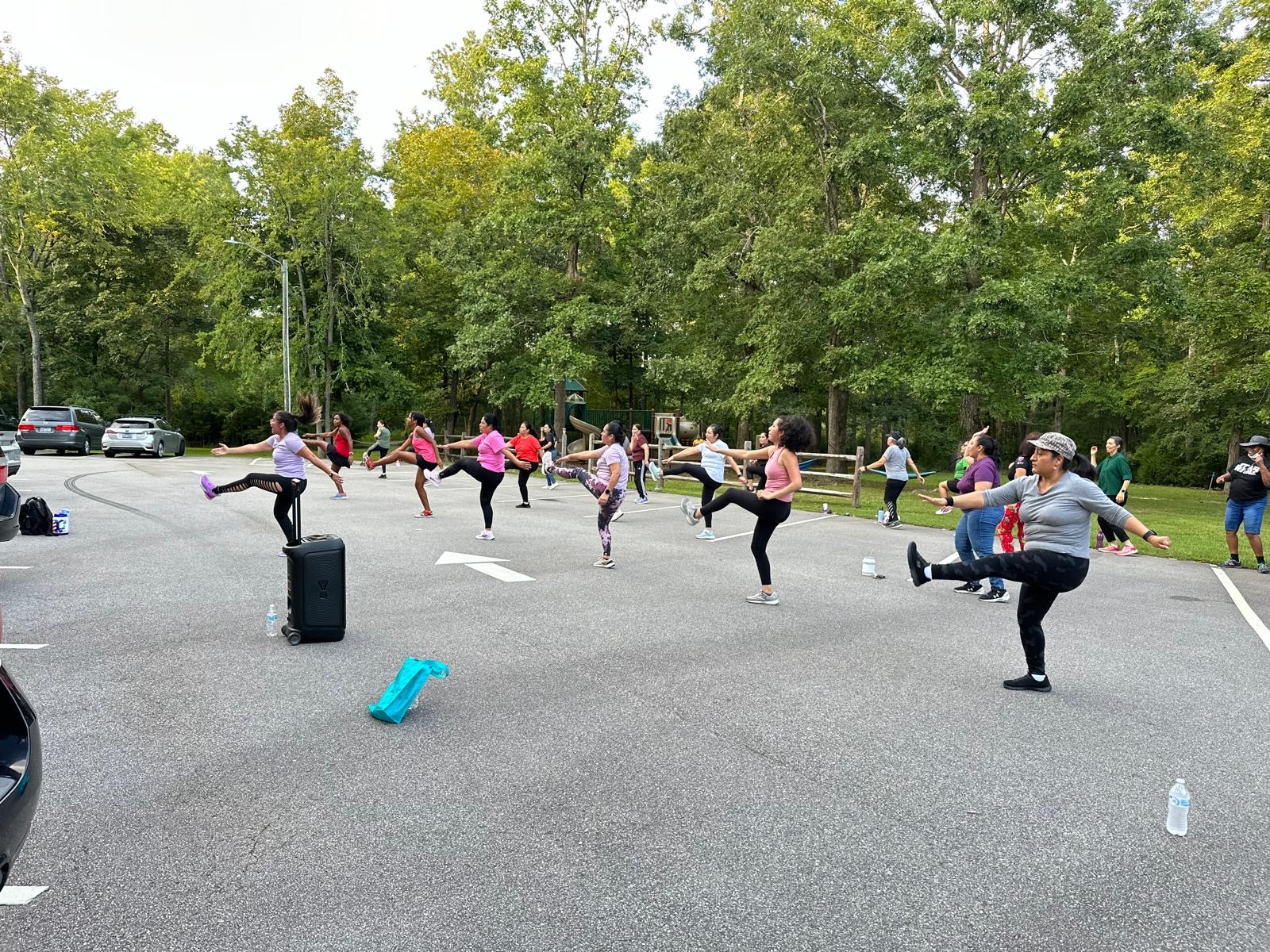The elimination of funding for the Supplemental Nutrition Assistance Program (SNAP) championed by President Donald Trump’s administration will have significant impacts to organizations and groups across the country. Among those are efforts in Hillsborough’s Fairview community to help residents keep active and healthy.
Ahead of Congress’ vote to approve the omnibus bill of spending cuts and tax breaks, the Food Fitness Opportunity Research Collaborative at UNC shared how the changes will affect its work to engage the historically Black neighborhood and promote healthy living. Within the measure, SNAP-Ed — the nutrition education and obesity prevention side of the food benefits program — will be completely defunded while several other SNAP-related grants and efforts would required state funding support. The cut was among the adjustments made by the U.S. Senate before it narrowly passed the bill and the U.S. House passed it on Thursday.
The research team said three of its key programs are specifically funded by SNAP-Ed grants: the Fairview Youth in Action internship, the Fairview Community Garden at the Dorothy N. Johnson Community Center, and the Women on the Move class. The Fairview Youth in Action (FYIA) initiative is the centerpiece, having started as a grassroots efforts by a group of young residents in the neighborhood who wanted to organize a litter pick-up along the roadsides. With the help of FFORC and federal funding, it has blossomed into a paid summer internship where high school students design research projects that study and address what they see in the Fairview community. Some of the interns efforts have included petitioning the Town of Hillsborough to paint new road lines and refurbishing the community center, all with the goal of helping the young residents become more civically engaged.

Interns of the 2025 Fairview Youth in Action Internship cohort pose with FFORC staff and Fairview Community Watch members in front of the Fairview Community Center’s sign in Hillsborough. (Photo via the Food Fitness Opportunity Research Collaborative.)
“Fairview Youth in Action empowers high school students in Fairview to make a real difference in their community while also helping them prepare for college and beyond,” said Molly De Marco, who works as the program lead for UNC FFORC. “These remarkable students are leading the charge to make life better, healthier, and safer in Fairview and across Orange County. SNAP-Ed is a cost-effective and proven program that allows us to be responsive to community needs like supporting this youth internship program, to help families keep costs down, make healthier food choices and lead active lifestyles.”
Additionally, UNC FFORC uses SNAP-Ed funding to support 13 community gardens across North Carolina to help people grow fresh food and teach gardening skills. The collaborative said that program helped provide more than 1,300 people with roughly 48,000 pounds of produce in the last year alone — including a garden on Tulip Tree Drive in the Fairview neighborhood. Garden Manager Diana Montgomery, who also serves on the Fairview Community Watch, said the amenity at the community center has been a hit since its establishment in 2009.
“Dozens of residents rely on the community garden for access to affordable, fresh produce and as a space to connect with neighbors,” Montgomery said. “Cutting the SNAP-Ed funds we need to keep our garden going could put the health and well-being of our entire community at risk, and that’s why we’re calling on legislators to stop these cuts from going into effect.”
Another FFORC effort in Fairview is Women on the Move. A weekly physical activity and nutrition class, the program has 39 women registered for the sessions held in the community center’s parking lot and its participants have tallied a total of 25 hours of activity together so far this year.

A Women on the Move class meets and does some exercises outside the Fairview Community Center in Hillsborough. (Photo via the Food Fitness Opportunity Research Collaborative.)
With those examples and its other work across the state using SNAP-Ed funding, UNC FFORC says both data and anecdotes reflect how successful nutrition education and engagement can be. The research team says participants in their programs are more likely to meet recommendations for health eating behaviors afterward — and a state-level study showed that for every $1 SNAP-Ed spent, it returned at least $5.36 in future health, economic and education benefits for the person.
What happens now for FFORC with SNAP-Ed funding gone? Project Manager Kevin Giff told Chapelboro the research team is turning its attention toward identifying alternative ways to maintain and sustain its efforts, like the work in Fairview. He said the collaborative is committed to keeping the initiatives and working with partners to explore funding opportunities while navigating the uncertainty caused by the federal changes.
Chapelboro.com does not charge subscription fees, and you can directly support our efforts in local journalism here. Want more of what you see on Chapelboro? Let us bring free local news and community information to you by signing up for our newsletter.








